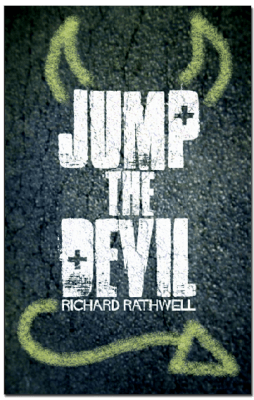
Jump the Devil
Richard Rathwell
8th House Publishing
$18.88
paper
146pp
978-1-926716-11-4
Born in post-war Ottawa, Rathwell began his career in political activism early. He studied at Simon Fraser University with world-renowned poet Robin Blaser and was arrested for his involvement in leading political organizations. In his mid-twenties, the Canadian Parliament took notice of Rathwell’s activities during the Gas Town riots of 1971. Rathwell earned the title of revolutionary, a moniker he wears proudly to this day.
Since graduating from university, Rathwell has traveled all over the world. As well as working in development aid in conflict areas, he’s taught English in Nigeria, Zimbabwe, Lesotho, and beyond. His written work includes poetry, drama, short stories, and novels.
Rathwell’s deep understanding of and personal experience in the developing world is obvious in Jump the Devil, his latest collection of linked short stories, and most striking in the story entitled “The Biting of Doctor Condor.” We meet Jack, a cynical, self-important, and feverishly delusional doctor who finds himself stranded in the middle of a revolution, unable to get out of bed. Doctor Condor is despicable in so many ways and yet, as readers, we are able to conjure up compassion for him because Rathwell has provided us with a context for his hateful protagonist. In the first two stories of the collection, “Crawl Space” and “Christmas Tree Hill,” we meet Jack’s parents, his sister, and his sister’s second husband, Woozer. From these stories we learn about the suffocating, petty, and class-driven middle class from whence Jack came. We witness the damage done to an idealistic young man.
Damage is a recurring theme in this collection. From the effect of a bomb blast on Jack’s fathers’ ears, to the wear and tear of a lifetime of worrying about what the neighbours are thinking, to the fallout a mother’s illicit affair has on her illegitimate daughter, Rathwell charts how humans are deformed by what they must endure. And even more tragically, he forces us to consider how the damage inflicted on one generation poisons the generations that follow.
Rathwell’s writing is strongest when he writes in the voices of Jack and Jack’s parents. The writing falters when he grapples with the voice of Tina, a young woman who is struggling to escape from her parents’ traditional values and live her own life in her own way.
At the end of the collection, Rathwell includes an essay that defends his writing style. Academic in tone, the essay suggests that Rathwell is already fully engaged in battle with any critics who might challenge his writing for being obtuse or otherwise flawed. But in the end, all this essay does is make us suspect that, like his protagonists, Rathwell feels keenly the extent to which he too is a victim of the damage done.






0 Comments